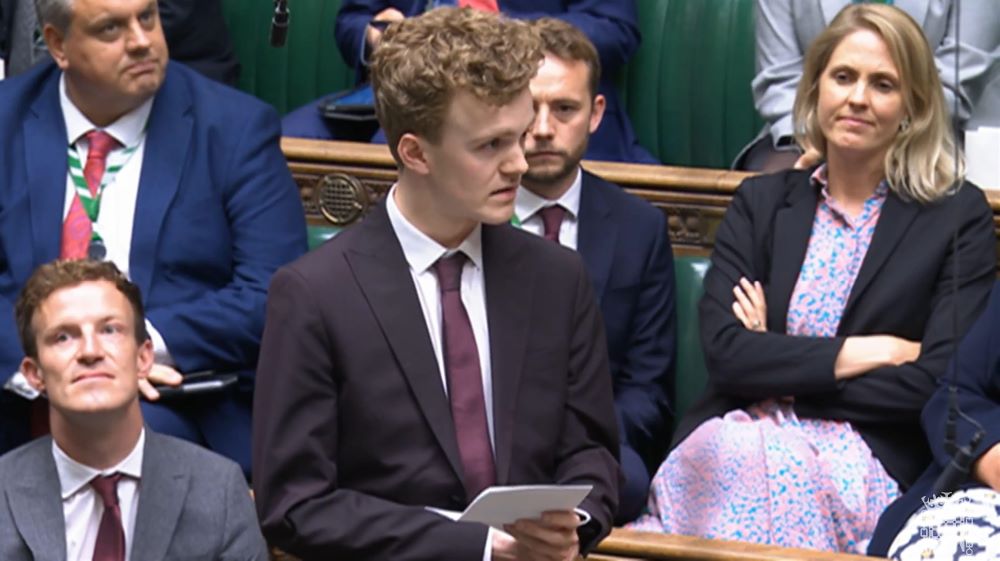Youngest MP Calls For 'Voting Terminals' Around Parliament As Backbenchers Plan Modernisation Drive
Vote result being read out in the House of Common
3 min read
Labour MP Sam Carling has called for the Modernisation Committee to consider reform of Parliament's voting system to make MPs "more productive".
Speaking to PoliticsHome, the Labour MP for North West Cambridgeshire said: "MPs have a huge amount of demands on our time. Physically walking through a room to vote several times in a row – it may be 15 minutes, but then we have to hover till the next one starts. So we could be there for over an hour straight... How much could I have done in that time? Quite a lot."
Carling told PoliticsHome "there's a lot of people who are looking to see reform to the voting system".
Carling estimated that it currently costs up to £7,600 of MPs' total time per vote, presuming that all 650 turn up.
He calculated the figure by assuming the House manages three votes an hour, with MPs working a 50 hour week. Looking at four votes per hour on a 60-hour week, the cost was £4,759 per vote.
"At the moment, I have to give myself time to trek over to the palace, which takes... 10 minutes."
"If I could just have some buttons to press. That's a two-minute job. So there's a significant amount of time I think we can save there."
MPs 'could be a lot more productive'
"I would put terminals around the place."
Carling said he appreciated that there are arguments against modernisation, for example the fact that being in the Chamber is a "good opportunity to lobby ministers".

While he accepted that that argument had merit, he said: "I think a lot of that is outweighed by just the fact that we could be a lot more productive."
If there were resistance to full-scale change, Carling said "getting rid" of the tellers – who physically count MPs' votes – would be "a happy medium" as "the thing that slows us down is the single file queue at the end to get past the tellers".
This way, he said, the party whips would still be confident they are able to help people who are not sure what's going on "because I think that's another worry as well there".
Speaking to PoliticsHome about his proposals in his office, Carling said: "But what I prefer to have is just have pass readers around the estate. So there’s a division on, [we] could have one on the ground floor of this building [1 Parliament Square], or just one on each floor in this building, which would be significantly easier to deal with quicker for everybody."
It comes after a group of MPs were expected to make a submission to the Modernisation Committee calling for it to look at curbing alcohol provision during working hours, diversifying paintings on display, and improving lighting within the building.
The Liberal Democrats have also submitted to the committee, calling for an improved Private Members' Bill (PMB) process, and an independent body to decide the scheduling of the House, PoliticsHome recently learned.
Sarah Olney, the Liberal Democrat Spokesperson for the Cabinet Office, said the party has suggested a "sifting process" for PMBs, where backbenchers are supported by government officials to design a PMB that will "really work", and so will have "improved chances of legislation getting on the statute".
Olney said the party has also suggested introducing an independent body to "take the programming [of the House] out of the hands of the government".
"It's basically so that the scheduling doesn't then become a political football," she said. "All parties will get better notice of what's happening when, so that you don't suddenly get things scheduled at the last minute."
She added: "Certainly during a lot of the Brexit debates, we were just not given enough time to properly debate really serious issues. An independent body would ensure that proper time was being given to things that needed proper scrutiny."
